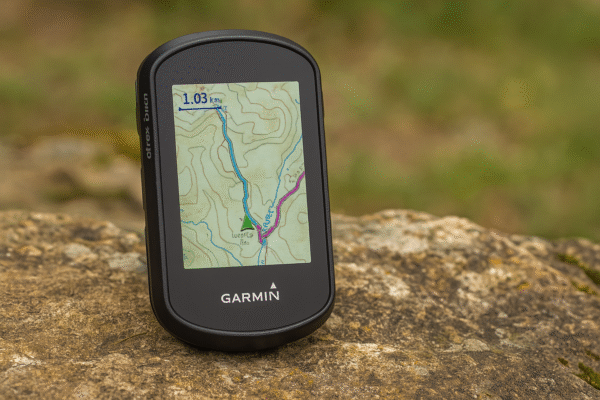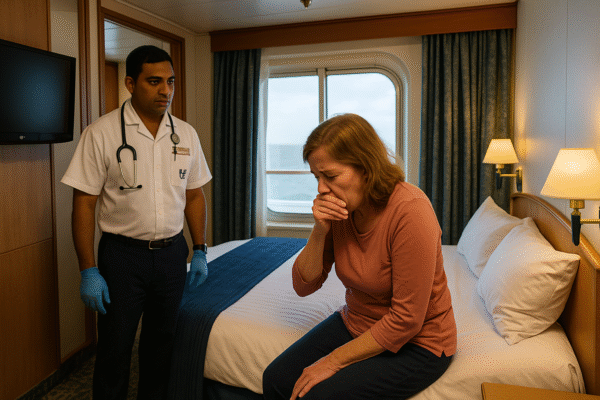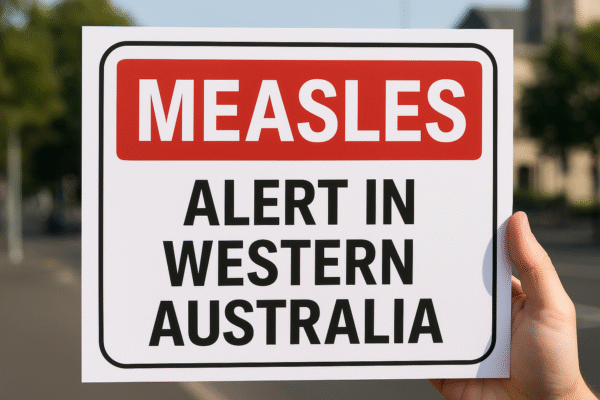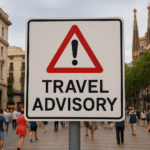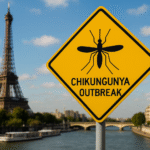From July to September 2025, Western Australia (WA) reported a measles outbreak with 16 confirmed cases across the region. Five of these cases were linked to overseas travelers returning to Australia, while the other eleven were locally acquired. Health officials, led by Dr. Paul Armstrong, Director of the Communicable Disease Control Directorate, have issued an urgent public alert. The outbreak serves as a reminder that measles, one of the most contagious viral illnesses, continues to pose a serious threat even in regions with strong healthcare systems.
For travelers heading to WA, this situation highlights the importance of vaccination, awareness of symptoms, and vigilance when visiting public spaces. Measles remains preventable with routine immunization, but its ability to spread quickly makes outbreaks a significant concern.
Understanding Measles and How It Spreads
Measles is a viral illness caused by the measles virus and typically develops within 7 to 18 days after exposure. It is primarily spread through airborne droplets expelled when an infected person coughs, sneezes, or speaks. These droplets can remain in the air for up to 30 minutes, making transmission possible even after the infected person has left the area.
Crowded environments such as shopping centers, public transport, and cafés increase the risk of exposure. Individuals who are unvaccinated or lack natural immunity face the greatest risk. Those born before 1966 are generally considered immune due to natural exposure, while individuals who have received two doses of the measles vaccine are usually well protected. However, in rare cases, even vaccinated individuals may contract a milder form of the illness.
Exposure Locations Across WA
Health authorities have identified several public venues where infected individuals were present during the outbreak period. Visitors to these locations at the specified times are advised to monitor their health closely for up to 18 days. Key sites include:
- Tods Café, Halls Head – Monday, 08 September 2025, from 2:00 pm to 4:00 pm
- Dan Murphy’s Butler and Coles Brighton – Saturday, 06 September 2025, between 10:00 am and 12:00 pm
- Woolworths Clarkson – Sunday, 31 August 2025, time unknown
These exposure sites reflect how quickly measles can spread in everyday settings, from supermarkets to cafés. Travelers visiting WA should remain cautious, particularly if they were in these areas during the outbreak period.
Who Is Most at Risk?
While anyone can contract measles if exposed, certain groups face higher risks of severe complications:
- Unvaccinated children born after 1965
- Immunocompromised individuals such as those undergoing chemotherapy or living with chronic conditions
- Young children who have not yet received all scheduled doses of the measles-mumps-rubella (MMR) vaccine
- Pregnant women, who are more vulnerable to complications that can affect both mother and child
These groups should exercise additional caution and seek medical advice if they suspect exposure.
Symptoms to Watch For
Measles usually begins with symptoms such as:
- Fever
- Runny nose
- Persistent cough
- Sore, red eyes
Three to four days later, a red, blotchy rash typically develops, starting on the face and spreading down the body. The rash usually lasts between four and seven days. People infected with measles often feel very unwell, and some require hospital care. Complications may include pneumonia, ear infections, or in rare cases, encephalitis (inflammation of the brain), which can be life-threatening.
Importantly, measles is contagious from one day before symptoms appear until four days after the rash develops, making it highly transmissible even before an infected person realizes they are sick.
Guidance for Travelers and Residents
Travelers and residents who attended the listed exposure sites should carefully monitor their health for up to 18 days after potential exposure. Anyone who develops symptoms should:
- Wear a mask and isolate immediately to prevent further spread.
- Seek medical attention but call ahead before visiting a clinic or emergency department, so staff can prepare proper isolation measures.
- Contact healthdirect on 1800 022 222 for after-hours medical advice.
For those planning international travel, consulting a doctor or travel health clinic is strongly recommended. Babies as young as six months can receive an early dose of the MMR vaccine before traveling to countries with high measles prevalence. However, they must still complete their routine immunization schedule as outlined in the National Immunisation Program (NIP).
Advice for Health Professionals
Healthcare workers across Western Australia have been urged to remain alert for signs of measles, especially in patients presenting with fever and rash who have recently traveled. Medical practitioners should:
- Isolate suspected cases immediately
- Provide patients with masks
- Avoid using the consultation room for at least 30 minutes after assessment
- Arrange laboratory testing, including PCR analysis and serology tests
- Report suspected cases to the local Public Health Unit promptly
Free MMR vaccines remain available to anyone at risk of contracting measles, even those not covered by Medicare.
A Final Word for Visitors
For tourists heading to Western Australia, this outbreak is a reminder of the importance of proactive health measures. Checking vaccination status before traveling, knowing the symptoms of measles, and following health advice can make the difference between a safe holiday and an unexpected medical emergency.
Western Australia continues to welcome visitors, but the recent measles alert highlights how easily infectious diseases can disrupt travel. Staying informed and vaccinated ensures both personal safety and the protection of the broader community.
For more travel news like this, keep reading Global Travel Wire



